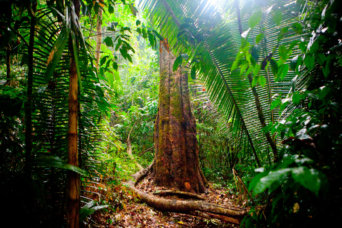- About
- Topics
- Picks
- Audio
- Story
- In-Depth
- Opinion
- News
- Donate
- Signup for our newsletterOur Editors' Best Picks.Send
Read, Debate: Engage.
| located: | Brazil |
|---|---|
| editor: | Maria João Morais |
It’s renowned as one of the world’s great natural wonders, with its ecosystem forming an indelible part of the global climate, yet the Amazon is under greater threat than ever. To the dismay of conservationists worldwide, the Brazilian government recently announced that it would abolish a vast national reserve in the Amazon that has been protected for over 30 years. The latest move by President Michel Temer keeps up his track-record of placing economic interests ahead of the environment.
The decision to dissolve the protected area known as the National Reserve of Copper and Associates (Renca) was announced as a measure to improve exports and attract investment in the Amazon region. Dealing with the deepest recession in decades, the government of Latin America’s largest economy claimed that opening up the Amazon area to commercial mineral exploration would stimulate the country’s weakened economy. The large area in the northern states of Amapá and Pará (roughly the size of Denmark) is thought to contain Gold, Iron and Manganese amongst other minerals and has already attracted the interest of more than 20 firms.
The move immediately stoked fury from environmentalists and human rights activists. Campaign groups such as the World Wild Fund dubbed the Brazilian’s government initiative a “catastrophe”, expressing concerns about potential environmental damage to the reserve. Opposition senator Randolfe Rodrigues of the Sustainability Network party described the move as “the biggest attack on the Amazon in the last 50 years”.
Apart from the dramatic impact of deforestation and its devastating effects on climate change, this rush for land in the Amazon is also threatening indigenous communities, who have been forcibly removed from their ancestral territories, paving the way for land-thirsty agricultural and mining projects.
Fortunately, Michel Temer’s move has been blocked by the Brazilian Federal Court, who argued that the president had acted beyond his authority, as the closure of national reserves such as Renca can only be carried out with congressional approval. It’s too early to sigh with relief, however, as the block is just a temporary measure. Since taking power, after the controversial impeachment of former president Dilma Rousseff from the Worker’s Party, Temer has continuously succumbed to the demands of powerful corporations lobbying for natural resource extraction.
Under Temer’s government, protected areas have been encroached upon, environmental licensing and monitoring has been weakened, and the rights of indigenous native people have been largely ignored and forgotten, whilst the future of the planet has simultaneously been put at risk once again.
